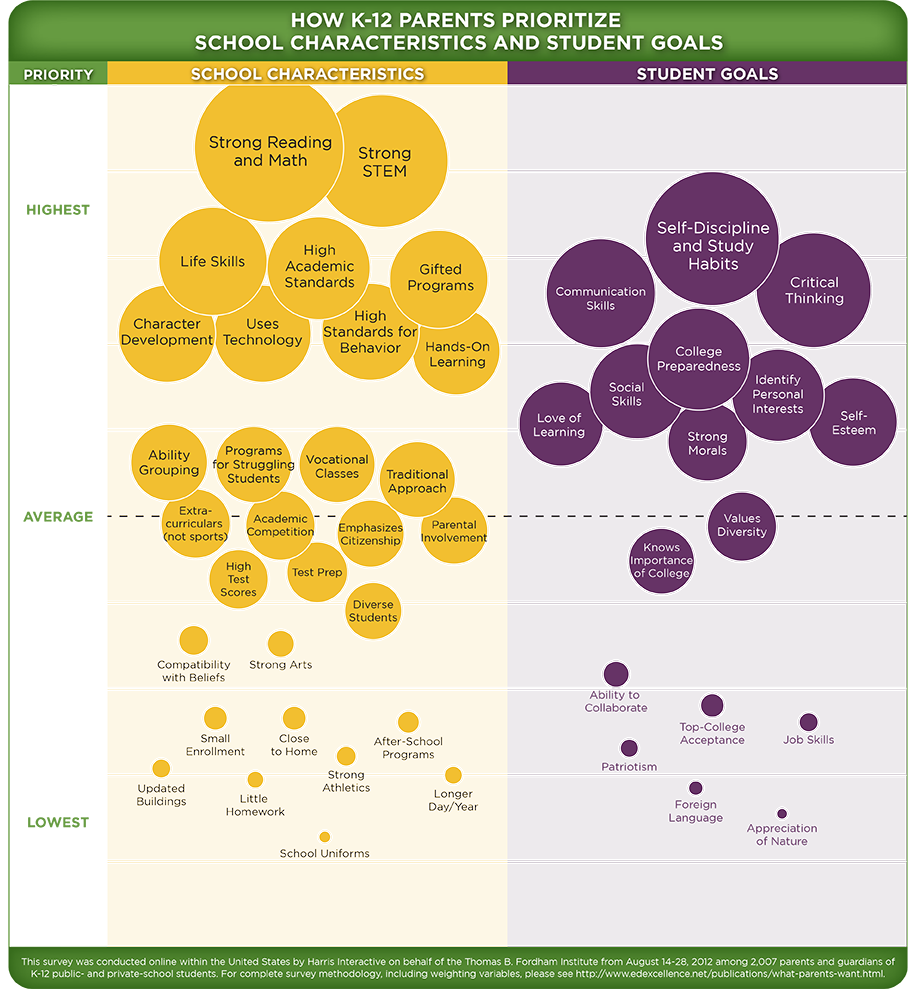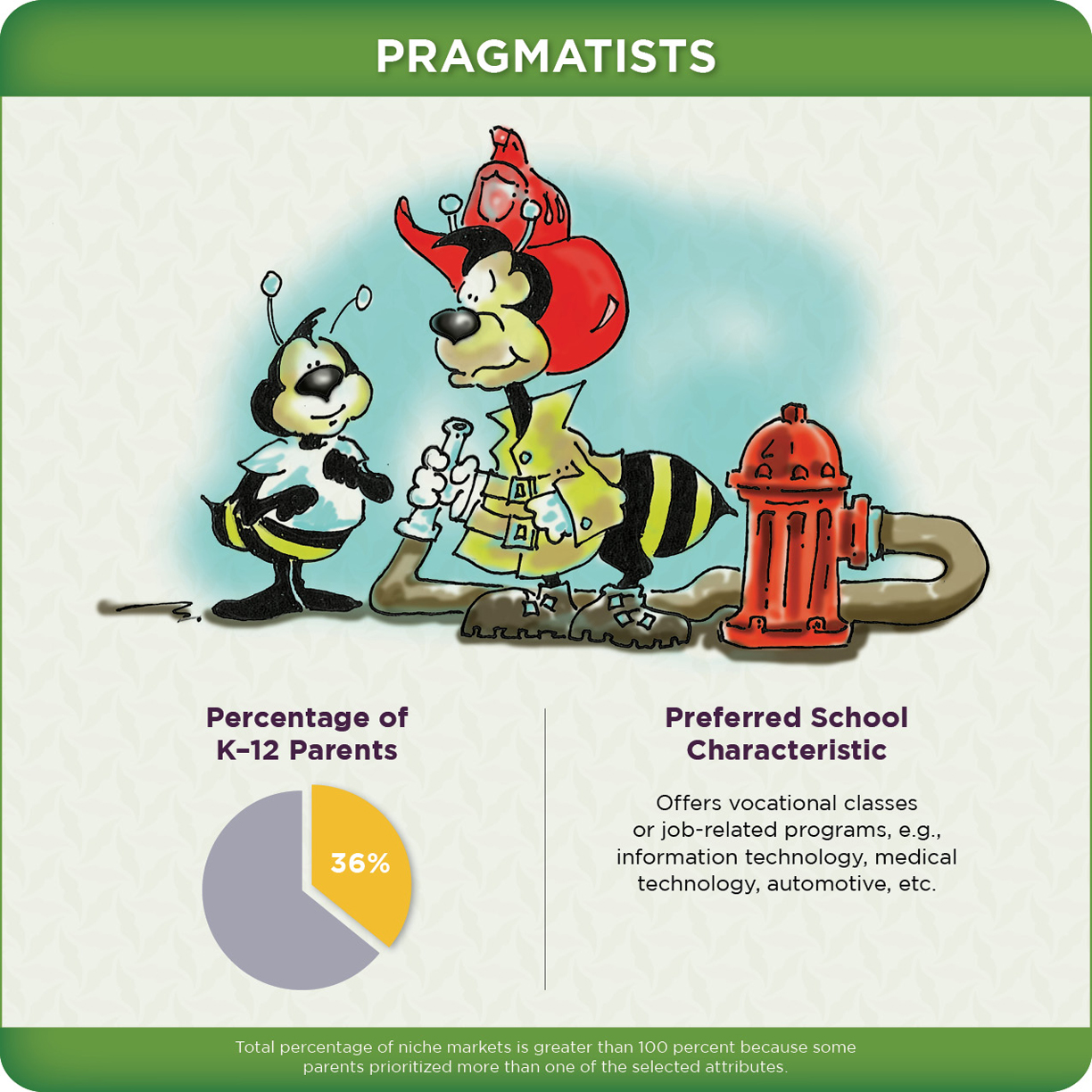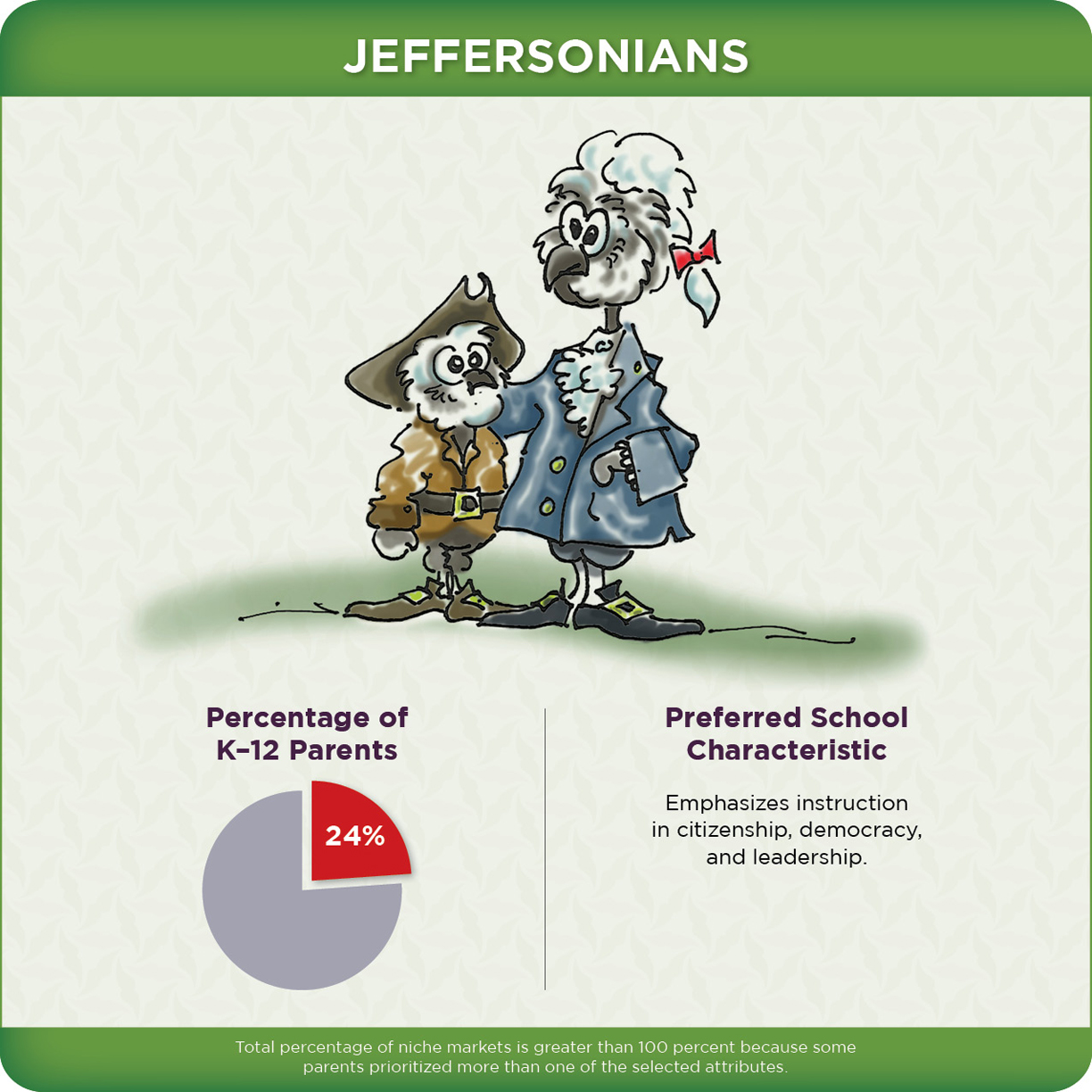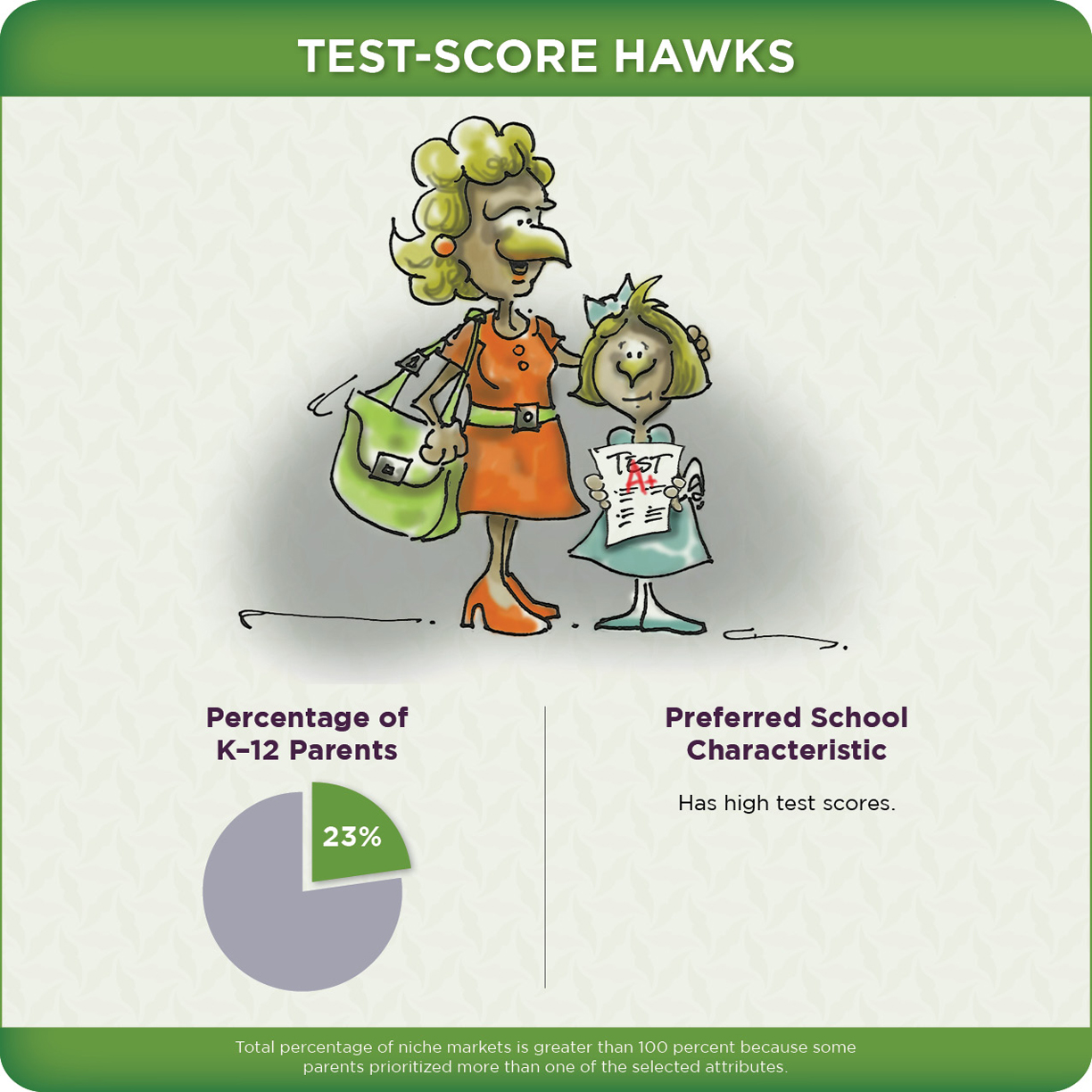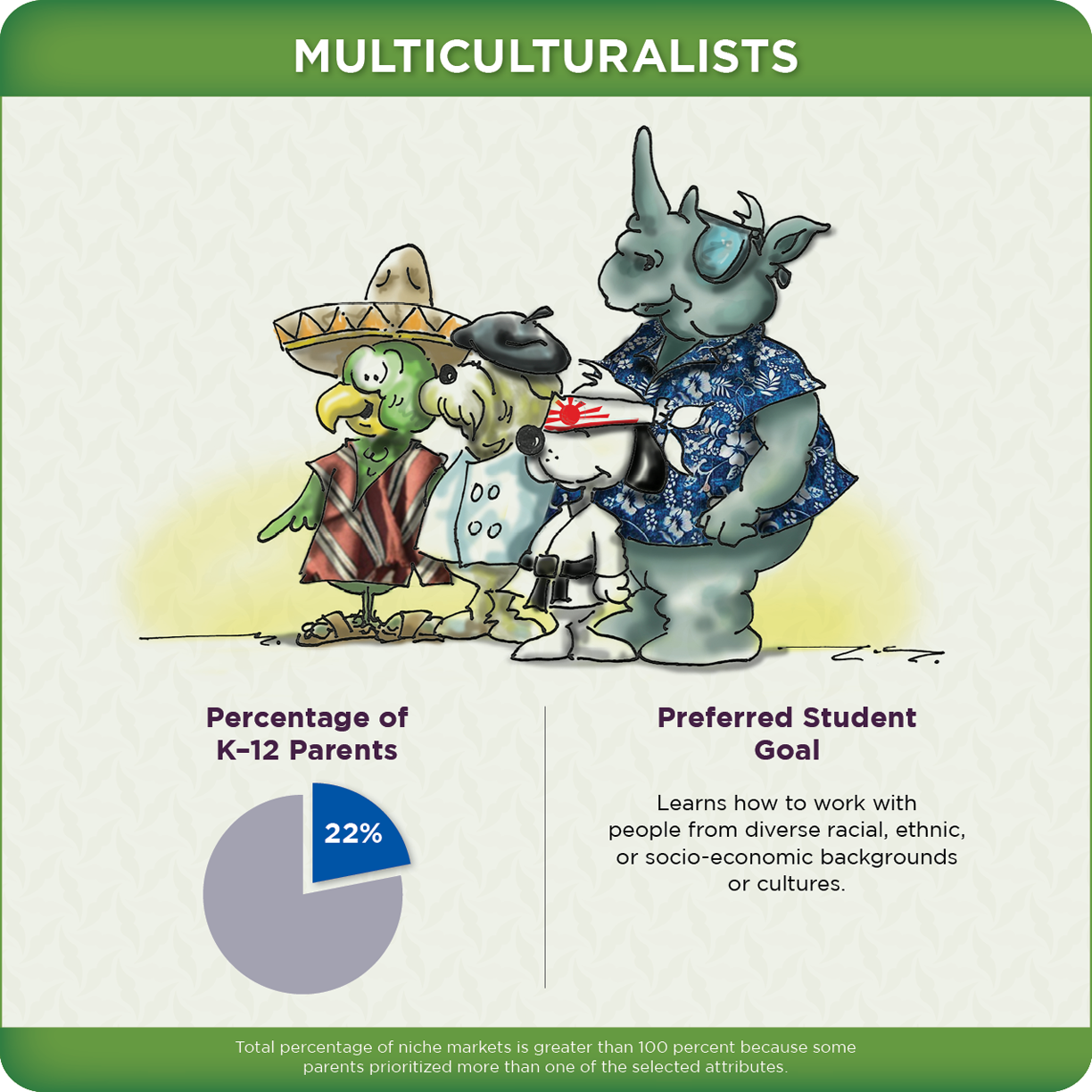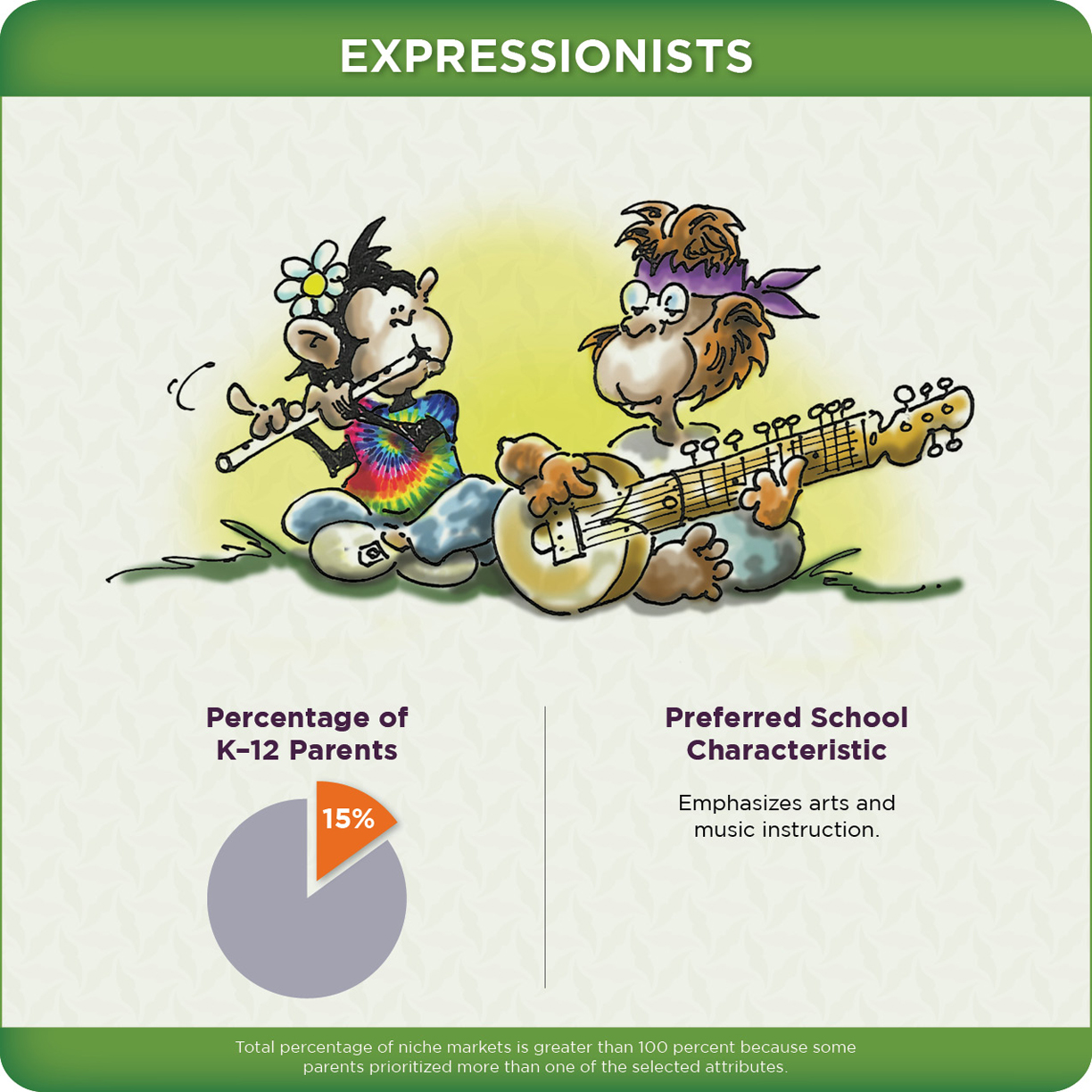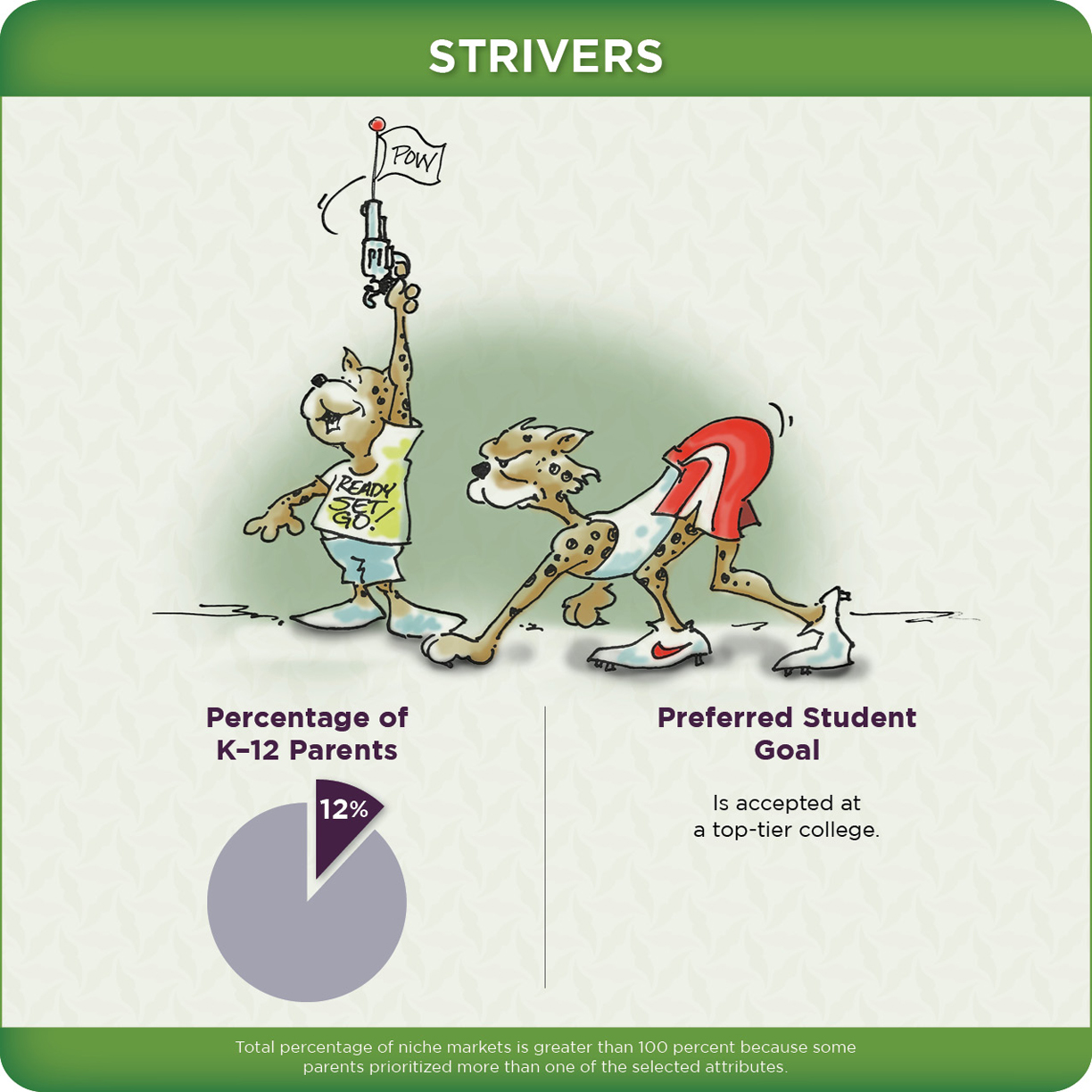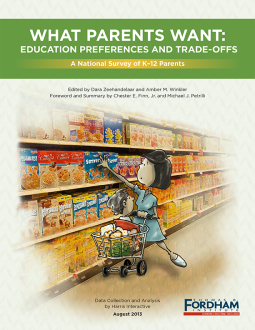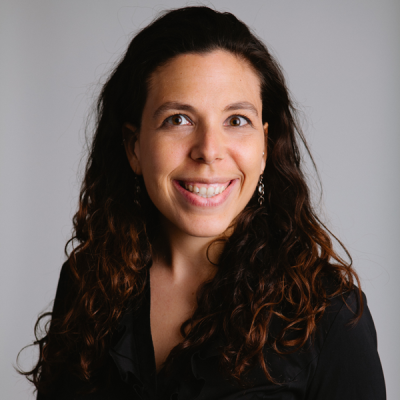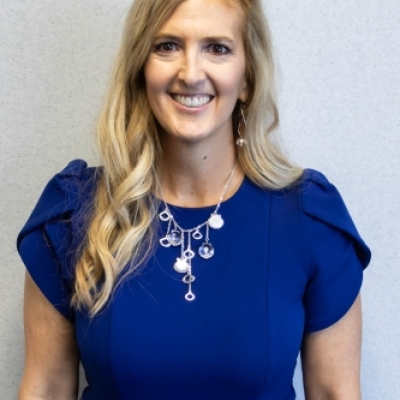This groundbreaking study finds that nearly all parents seek schools with a solid core curriculum in reading and math, an emphasis on science, technology, engineering, and math (STEM) education, and the development in students of good study habits, strong critical thinking skills, and excellent verbal and written communication skills. But some parents also prefer specializations and emphases that are only possible in a system of school choice.
- Pragmatists (36 percent of K–12 parents) assign high value to schools that, “offer vocational classes or job-related programs.” Compared to the total parent population, Pragmatists have lower household incomes, are less likely themselves to have graduated from college, and are more likely to be parents of boys.
- Jeffersonians (24 percent) prefer a school that “emphasizes instruction in citizenship, democracy, and leadership,” although they are no more likely than other parents to be active in their communities or schools.
- Test-Score Hawks (23 percent) look for a school that “has high test scores.” Such parents are more likely to have academically gifted children who put more effort into school. They are also more likely to set high expectations for their children, push them to excel, and expect them to earn graduate degrees. Test-Score Hawks are also more apt to report that their child has changed schools because, as parents, they were dissatisfied with the school or its teachers.
- Multiculturalists (22 percent) laud the student goal: “learns how to work with people from diverse backgrounds.” They are more likely to be African American, to self-identify as liberal, and to live in an urban area.
- Expressionists (15 percent) want a school that “emphasizes arts and music instruction.” They are more likely to be parents of girls and to identify as liberal; they are less likely to be Christian. (In fact, they are three times more likely to self-identify as atheists.)
- Strivers (12 percent) assign importance to their child being “accepted at a top-tier college.” Strivers are far more likely to be African American and Hispanic. They are also more apt to be Catholic. But they do not differ from the total population in terms of their own educational attainment.
What Parents Want: Education Preferences and Trade-Offs uses market-research techniques to determine what school characteristics and student goals are most important to parents.
